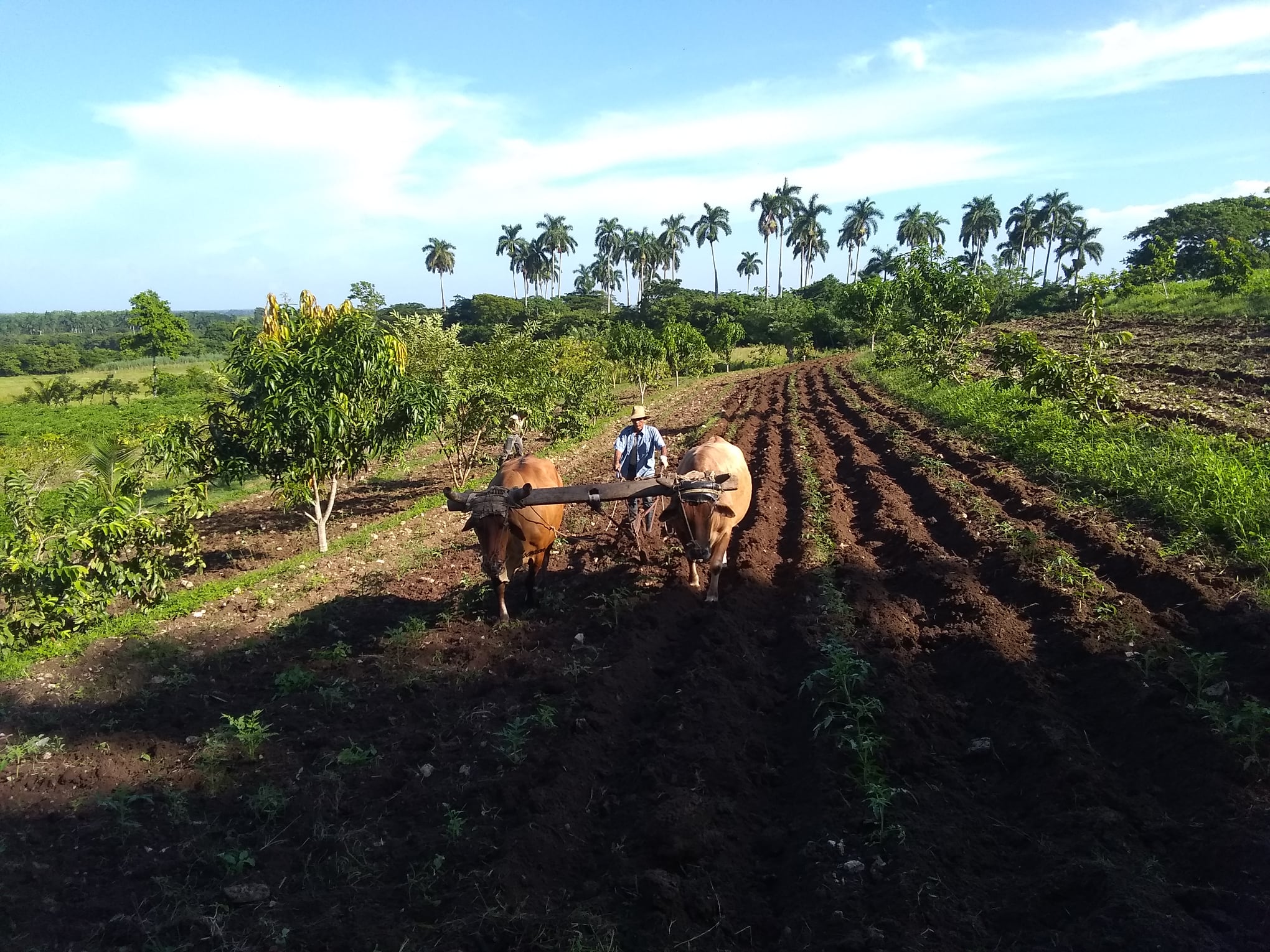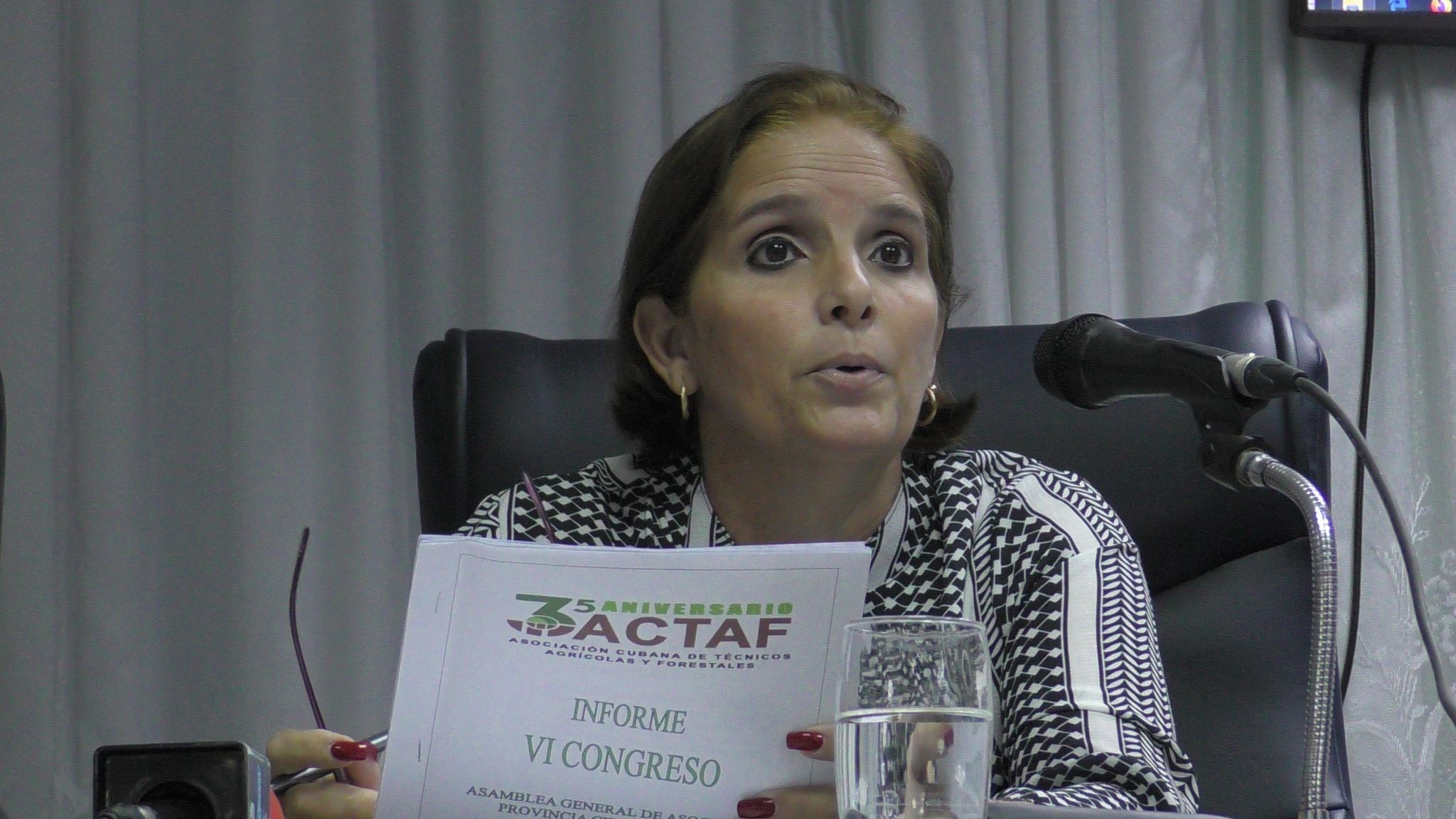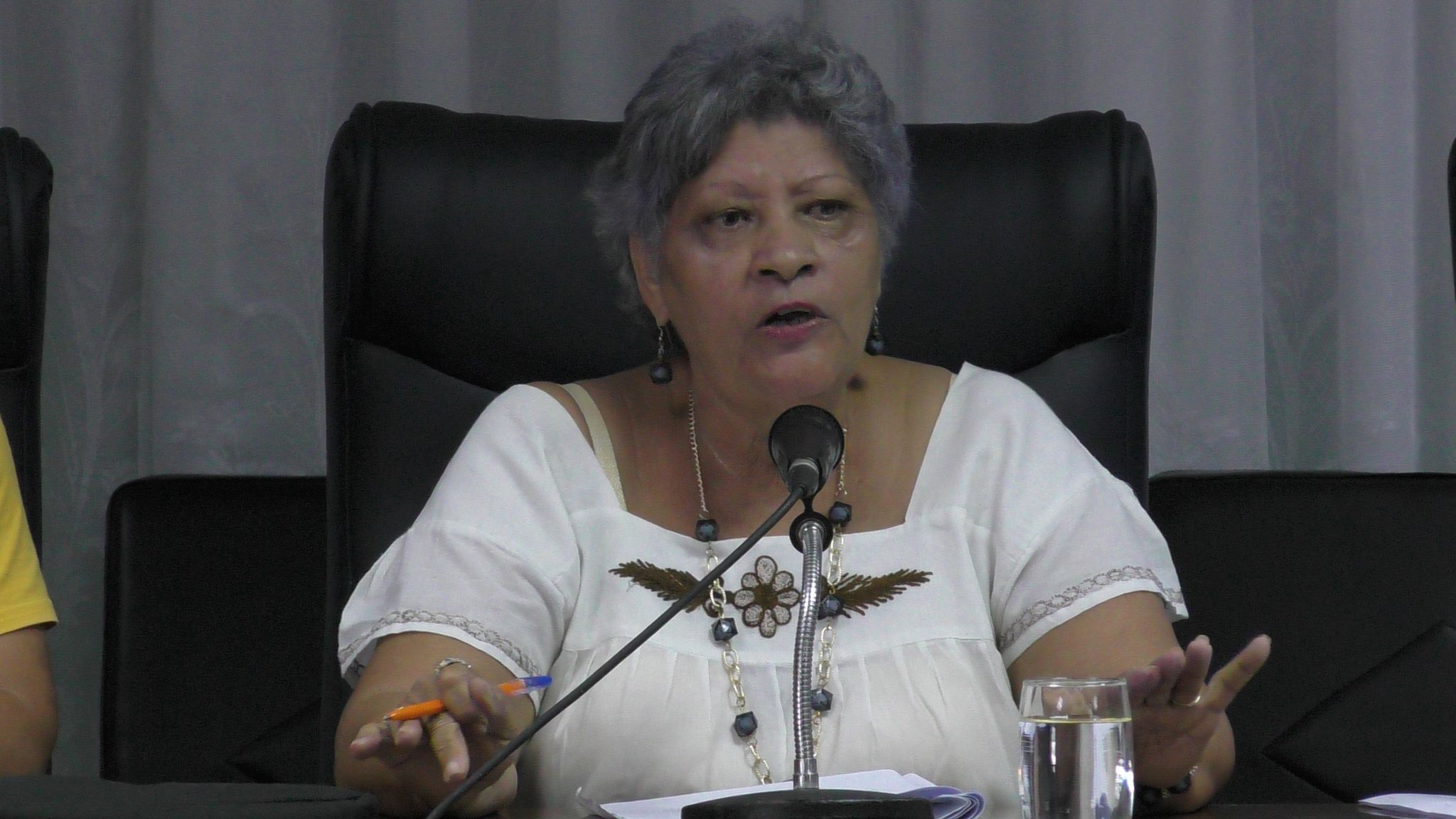Alina Beltrán Castillo, national president of the Cuban Association of Agricultural and Forestry Technicians (ACTAF), recognized the performance of the members of that organization from the province of Ciego de Ávila, who are involved in strategic programs for the development of the agricultural sector in the country.

In a recent visit to the territory, he highlighted the impact achieved here by the Sembrar Con-Ciencia movement by facilitating exchanges with producers and peasants on the implementation of the 63 measures to boost agriculture and the Plan for Food Sovereignty and Nutritional Education (SAN).
The leader stressed that at the country level, ACTAF is integrated into the working groups set up by the Government to direct and control the progress of projects aimed at agricultural development, and participated in the creation of the Law on Food Sovereignty and Food Security and Nutritional.
The criteria of that organization help define agrarian policies in the context of updating the Cuban economic and social model, which constitutes recognition of the more than 35 years dedicated to integrating agricultural and forestry technicians and professionals for agrarian development and sustainable on agro-ecological bases, he emphasized.
They are prestigious for being part of the Technical Advisory Council of the Ministry of Agriculture and the National Reforestation Commission, in addition to being linked to institutions of the Ministry of Science, Technology and Environment, which allows them to participate in advisory work for decision making, he said.

Beltrán Castillo underscored the improvement of attention to partners, including capacity building for the development of sustainable agriculture; and the execution of communicative actions and recognition of positive experiences that materialize the model of progress that they defend.
Having a system of awards and prizes facilitates individual and collective stimulation, while having printed and digital publications contributes to disseminating the work of the organization and socializing the results of scientific research.
When examining the results of the organization during the organic process that preceded the VI Congress, Josefina Córdova Tellería, provincial president of ACTAF, pointed out that the 2017-2021 period constituted a challenge when new economic management models were implemented and the ironclad US blockade was faced and the COVID-19 pandemic.
He explained that the associates joined the Agroecological Table and the Ana Primavesi Agroecological Chair, of the Máximo Gómez Báez University, with the purpose of systematizing the creation and expansion of capacities to introduce scientific-technical results, in order to develop sustainable agriculture on agroecological bases.
Access to international programs such as Soil-Based Climate Financing and the National Fund for Forestry Development strengthens institutional management through the execution of 20 projects and workshops on adaptation to climate change and the Life Task, and the rescue of endemic species.

The training sessions also addressed issues related to environmental education, agroforestry and silvopastoral systems, sustainable forest development, the formation of values in the new generations, technologies for the use, management and conservation of soils, the SAN Plan and local development, he added.
The Sustainable Agriculture Support Project (PASS), currently underway, is characterized by the closure of two value chains for organic products, consolidates work in two mini-industries and implements the circular economy in two municipalities.
As part of this initiative, and through integration with the Fruit Growing Research Institute, an extensive training program has been developed on the management of value chains, sustainable systems on agroecological bases, vulnerabilities and risks, and other topics that allow the establishment of systems participatory guarantees in organic certification.
The management of PAAS achieves a social impact by creating more than 130 jobs with facilities for the incorporation of female and youth forces, in addition to achieving transformations in the productive systems of 21 farms by diversifying crops through the use of science and innovation with sustainable technologies.
Likewise, it favors the productive chains and the commercialization with around more than 50 points of sale in different popular councils of the province, and to ensure sales online and to the tourism sector, chains that guarantee sustainability, in correspondence with the agrarian policies and the SAN plan.
